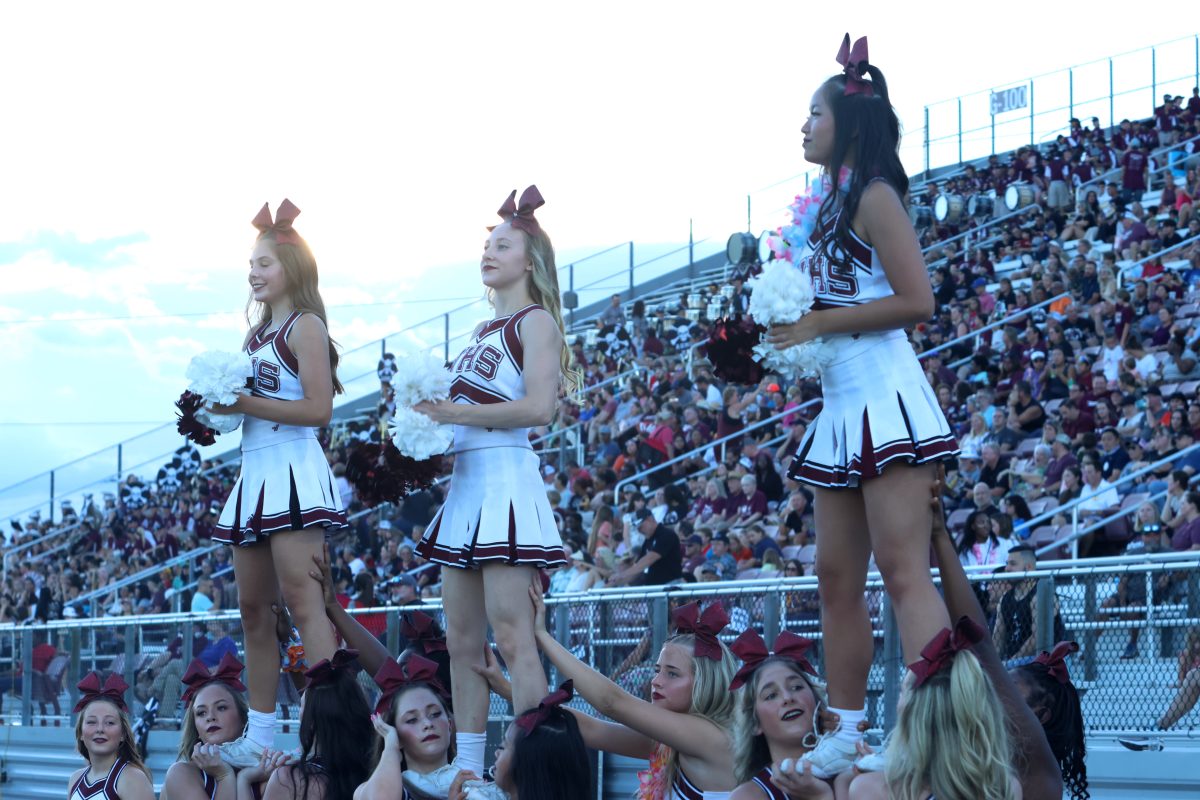At their annual mini-clinic, the cheerleaders teach young students the fundamentals of cheerleading in order to perform with them at Future Pirate Night. Through focused leadership and preparation, the team is setting a high standard for the event, aiming to showcase their skills and ensure a welcoming environment for the young participants eager to learn.
However, effective management of such a large group is not an easy task. It relies on balancing the need to teach with the responsibility of keeping everyone engaged and on track.
“We’re decently professional. I mean, just because we have so much experience doing it before. We have a lot more seniors this year that have done it for all four years, “ said Galilee Gresser (12), Varsity co-captain. “The biggest challenge is just getting the kids, like, in the right spot and not having them wandering around.”
The upperclassmen’ experience plays a key role in managing both logistics and positive energy. Familiarity with the event helps them stay organized, patient, and motivated while guiding kids through the station structure of the clinic. Gresser’s leadership over years of participation highlights the importance of handling logistical and interpersonal challenges effectively.
“When you’re dealing with a lot of little kids that don’t have their parents, it’s like it’s kind of difficult to manage them. But our parent volunteers did a really great job and kept everybody happy,” Gresser said.
Although the cheerleaders hold responsibility in directing the flow in which the kids learn, parents are also credited for encouraging participation.
“When I was younger, I was definitely very nervous to start with at least the first year, but I thought it was really fun because I thought [the cheerleaders] were really pretty and I thought it was fun to cheer on the sidelines and see the big crowd” said Ashley English (10), JV co-captain.
In contrast, English reflects on her earlier experiences with the clinic, highlighting the transition from participant to leader. Her insights reveal the personal growth that comes with advancing through ranks. Reflecting on her own experience, Ashley highlights the importance of patience.
“I think I was just very patient with them, but I also definitely set boundaries for myself because that is one of my big things. I learned that I do have boundaries, but I also remember that I liked it when there were people who were very patient with me if I wasn’t getting something,” said English.
Encouraging young students to join cheerleading involves setting a positive example and making the experience enjoyable, both of which are key goals for the team.
“Though you might hear people complain about and say like, it’s a lot of work, you’ll never understand what the great feeling is of being on a team where everybody supports each other and you can just be yourself,” said English.
With a focus on preparation and creating a supportive atmosphere, the cheer team’s efforts ensure the mini clinic is a both educational and enjoyable event for younger students possibly interested in what they do, while also reflecting that the dedication and camaraderie that define their own cheerleading experience.

